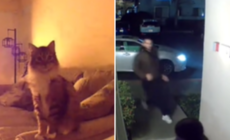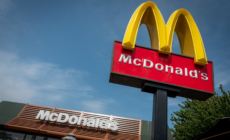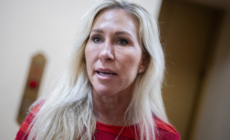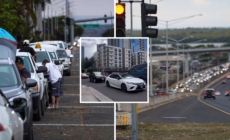-
Study: Pandemic aged our brains faster, whether or not we got COVID - 27 mins ago
-
Couple Check Pet Cam, Realize Cat Is Trying To Warn Them About Something - 34 mins ago
-
In Conversation with Brazil’s President Lula - 46 mins ago
-
How ICE is using the LAPD to track down immigrants for deportation - about 1 hour ago
-
Top FDA Official Appointed By Trump Admin Departs After Three Months - about 1 hour ago
-
Tsunami Warning Issued for Northern California - about 1 hour ago
-
Nationwide McDonald’s Boycott Planned For August 1: What to Know - 2 hours ago
-
Democrats, This Is Our Moment to Lead. We Can’t Blow It. - 2 hours ago
-
Trump Ally Marjorie Taylor Greene Becomes First Republican To Label Gaza a ‘Genocide’ - 2 hours ago
-
Hawaii Evacuation Videos Show People Fleeing Tsunami - 3 hours ago
Metro can move forward on subway car plans ahead of Olympics after deal
The Los Angeles County Metropolitan Authority settled a lawsuit over alleged violations of state and federal law and Metro policy related to a multi-million dollar contract to update subway cars ahead of the 2028 Olympics and Paralympics.
Advocacy and research group Jobs to Move America sued the transit agency last year after Metro awarded a contract to South Korean Hyundai Rotem, which is a part of Hyundai Motor Group, to build at least 182 new rail cars to replace much of its aging fleet.
The group alleged that Metro violated public contract laws and its own manufacturing policy by not disclosing required details about worker pay and benefits, and omitting commitments to hire a workforce of at least 10% “disadvantaged workers” for the project, which could include homeless people, single parents, veterans and others struggling in the workforce.
Metro settled the lawsuit last week for $250,000, which would cover the cost of legal fees, and agreed to modify terms of the $730-million order with Hyundai, according to records, to include the requirements. The deal means that the transit agency can go forward with its initial plans.
Metro said “the delivery timeline has not been impacted” by the lawsuit. The transit agency still expects to receive 42 cars ahead of the Games, as was laid out in the original proposal. Those cars are planned for use on the D Line, formerly known as the Purple Line. The route is currently undergoing an extension project beneath Wilshire Boulevard and is expected to be completed by 2027. Another 140 cars are expected to be delivered by May 2030.
The Metro policy, which includes penalties for non-compliance, was adopted in 2022 to ensure that federal and state dollars provided livable wages to blue collar workers. Metro originally tried to update the contract with Hyundai when it learned of the violations, but Jobs to Move America believed the revisions were not satisfactory. The group sued the agency and pushed for Metro to rebid the contract entirely.
“This procurement was an example of something that wasn’t done well,” said Madeline Janis, co-executive director of Jobs to Move America.
The settlement serves as a compromise and, according to Jobs to Move America, is a win for transparency. In addition to revising the contract with the requirements, Metro also agreed to hire an outside consultant to improve future procurement strategies and to broaden public record access around its contracts.
“It’s really important that the nature of the things like public contracting and the business of government be done openly, transparently and with the highest ethics and integrity,” Janis said. “We’re very confident now that Metro will have the tools in place to spend our dollars wisely, to build out our transportation system in a way that gets the most for our money and also gives us the best results.”
The next step will be to see if Hyundai complies with the new agreement. A major concern for Jobs to Move America over the contract’s lack of stipulations was related to Hyundai’s recent issues with U.S. employment standards.
Last year, the Department of Justice sued the motor company after finding a 13-year-old girl had worked up to 60 hours a week along an assembly line in Alabama. The suit, which also named auto parts supplier SMART Alabama LLC and a staffing service, alleged child labor law violations.
Hyundai said it “took immediate action” and that its suppliers cut ties with the staffing agency.
“What this [settlement] does is it ensures that Hyundai is held accountable for spending the money — about three quarters of a billion dollars — in a way that’s going to maximize the creation of good jobs and opportunities for Americans and Angelenos,” Janis said.
Source link


















